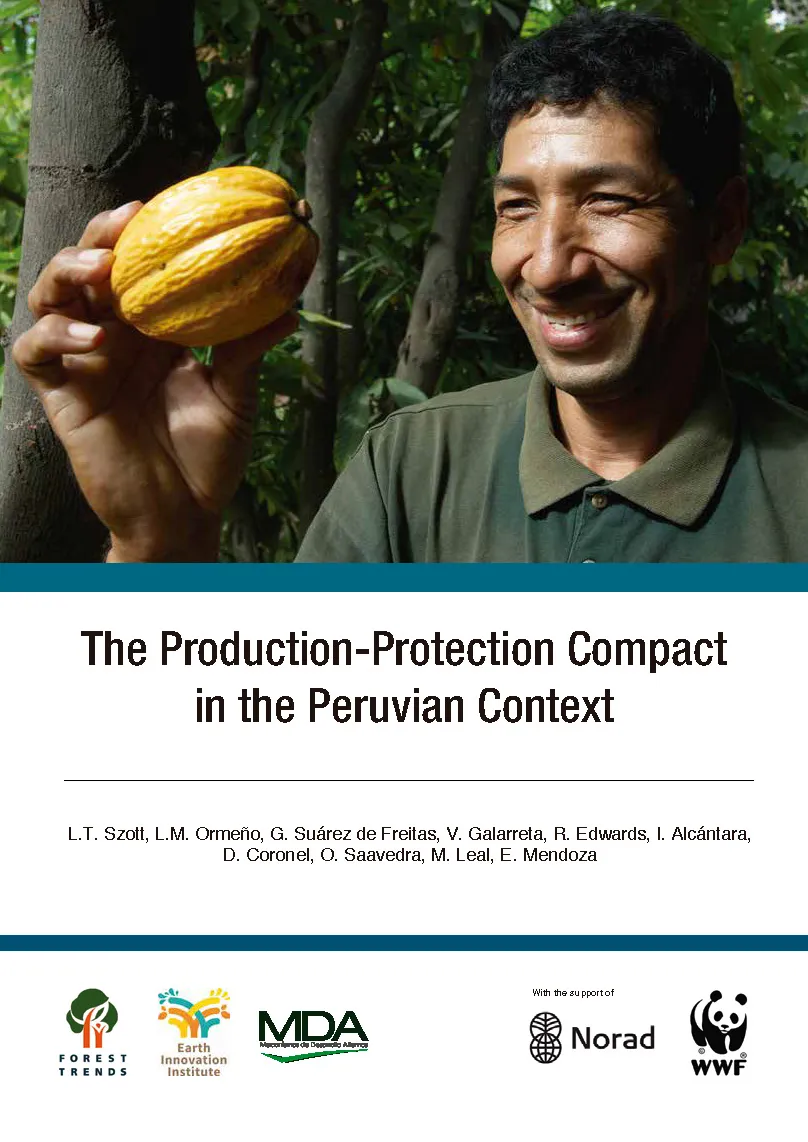The document provides a critical analysis of how the Production-Protection Compact (PPC) concept can be interpreted and applied within the specific realities of Peru, aiming to increase its chances of success. It highlights that deforestation in the Peruvian Amazon, largely driven by small-scale agriculture involved in coffee, cocoa, and oil palm value chains, contributes to over half of the country’s greenhouse gas emissions. Peru has committed to achieving zero deforestation by 2021 and reducing national emissions by 30% by 2030, with deforestation reduction being a centerpiece of this strategy.
The PPC proposes combining environmentally sustainable and economically profitable agricultural production with increased forest conservation to achieve sustainable development. However, Peru faces unique challenges compared to Brazil, such as weak land use governance, complex value chains, and a dominance of small, unorganized farmers with limited capital and market linkages. The document suggests a different PPC approach for Peru, emphasizing accessible credit conditioned on forest conservation, farmer organization, increased market linkages for sustainable products, and incentives for productivity, rather than disincentives for deforestation. It also details the characteristics, opportunities, and threats within the coffee, cocoa, and oil palm value chains in the Peruvian Amazon


